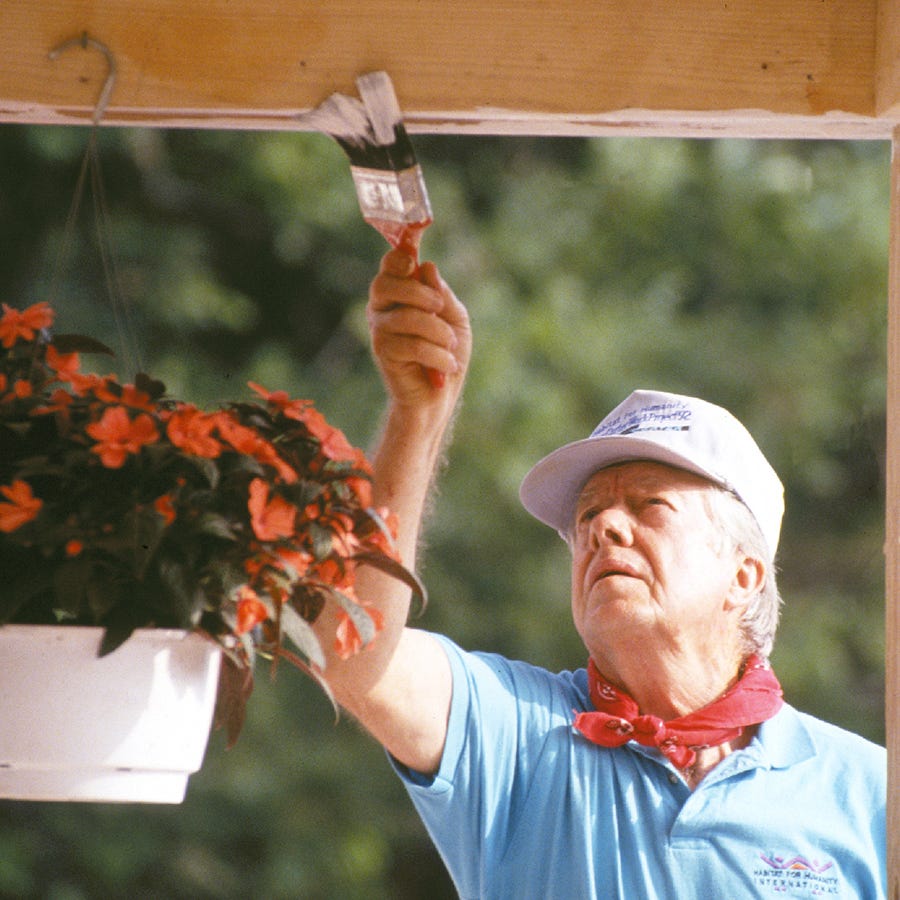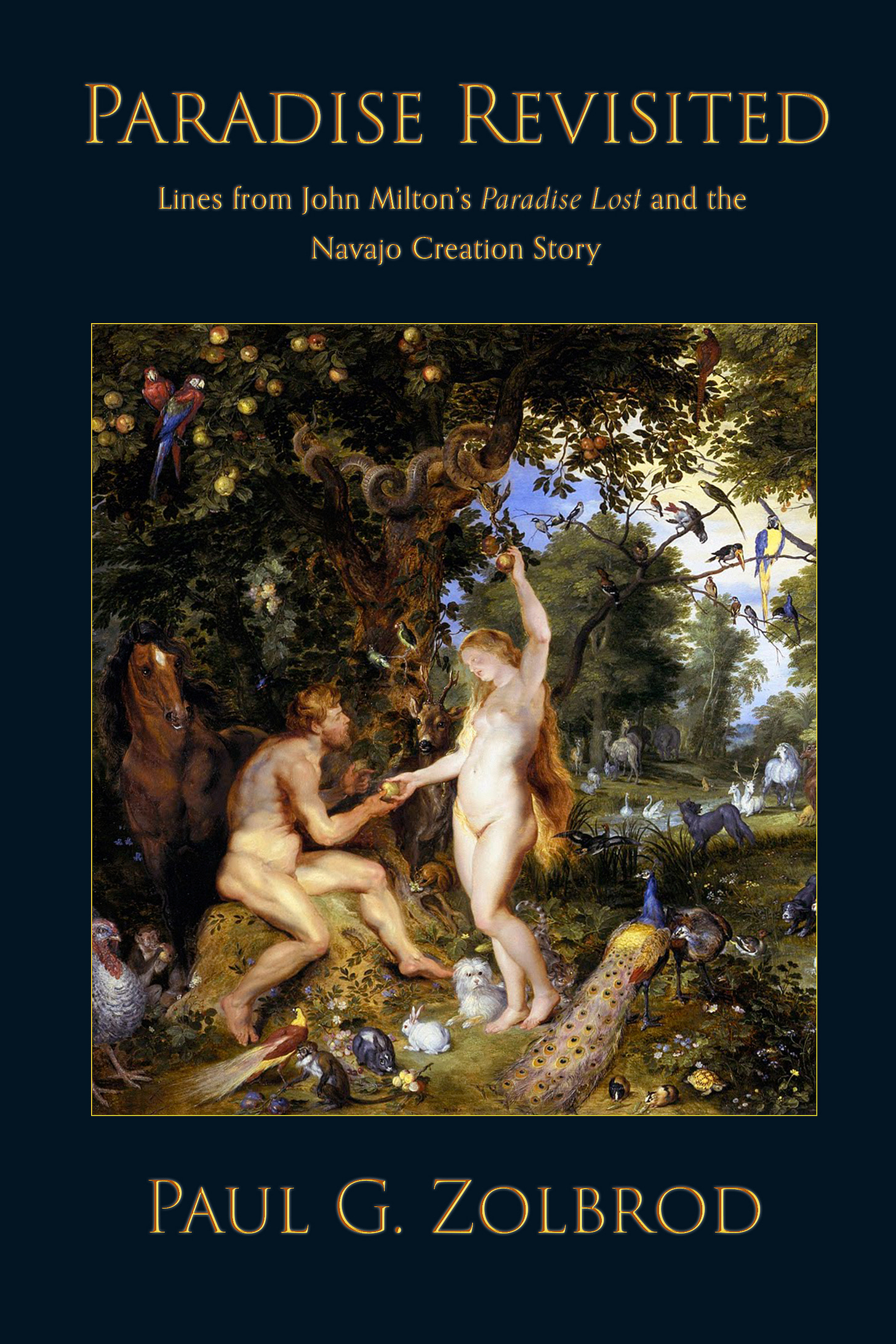Jimmy Carter: A Personal Tribute
by Paul G. Zolbrod, Ph.D.
Let’s honor him as a good man whose political career was merely an interlude during an extraordinary pilgrimage, and who has been a role model for me as I age. I see it thus thinking of John Bunyan’s Pilgrim’s Progress, published in 1678, once widely known but now ignored. Both a religious allegory and an exciting non-sectarian parable, it was must-reading for preteens during my boyhood in the 1970s, even in my Jewish household. Surely Jimmy Carter read it, too.
In Pilgrim’s Progress, Bunyan describes a Christian protagonist’s flight from the City of Destruction with sin’s burden on his back, seeking redemption. With him goes Evangelist as guide, urging him to persevere, although that destiny is his alone to reach as he struggles through Doubting Castle; averts the Giant of the Dead; fights his way through the Slough of Despond’s exhaustion; and turns his back on the City of Vanity Fair, whose heedless youngsters claim that living the good life is enough without religion. All very real in an allegorical frame where fantasy meets reality—thanks to the immediacy of Bunyan’s details; to his acute awareness of human nature; to the majesty of his disarmingly plain style; and to his harrowing vision of life’s trials.
It becomes Everyman’s ostensibly idealistic venture across life to overcome its innate flaws, relatable to Jimmy Carter’s life once we reflect on its simple beginnings, its ups and downs (which we can relate to), and his ultimate triumph. It’s as if he has borne life’s burdens for us all, with his good works and steady smile in the face of adversity. After finally retiring from political life to his modest Plains home and the church of his youth to resume teaching Sunday school, he becomes one of us. Few former presidents do that, and some never were that to begin with.
During the Carter years I took great satisfaction in having students read Pilgrim’s Progress. not with political partisanship or religious sectarianism, but as guide to Cristian practice at its ideal best, and above all as an example of how even a quaint literary landmark can deepen our understanding of what it means to be human in a flawed world.
Looking back on his long life, I have considered him a role model ever since he made his way into public life. Having myself once been elected to office at the grass roots level, I quickly learned that quid pro quo imposes compromise, and well before my term ended resolved to remain steadfast in teaching and out of politics.
If that’s how it was at the township level, what must it be like as president? Yet I admire the standards Jimmy Carter maintained under the pressures he faced. And I admire him even more for living out his life working to absolve himself of the burden of whatever regrets he may have had, lovingly in service to others. Which inspires me in my waning years as I revive thoughts of John Bunyan’s Christian example that life can imitate art.
We should all celebrate Jimmy Carter’s exemplary display of redemption as his life resumed following his presidency. I certainly do.
Paul G. Zolbrod, Ph.D., Professor Emeritus
Allegheny College and Pacifica Graduate Institute
Paul Zolbrod’s new book Paradise Revisited: Lines from John Milton’s Paradise Lost and the Navajo Creation Story publishes this spring. To preorder a signed, numbered premium limited color copy on glossy paper with 100 illustrations, please go to
Here’s the cover …




